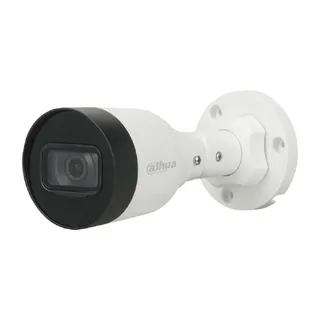AI-enabled Dahua cameras for facial recognition.
Businesses / Posted 3 months ago by Network Attach Storage / 30 views
In recent years, advancements in artificial intelligence (AI) have transformed the landscape of surveillance technology. Working with a reputable Security Company can help you leverage these innovations effectively. Dahua Technology, a global leader in security solutions, has been at the forefront of integrating AI into its camera systems. AI-enabled Dahua cameras with facial recognition capabilities are redefining security by offering unmatched precision, efficiency, and versatility. These innovative solutions cater to a wide range of applications, from enhancing public safety to streamlining access control in private establishments.
Understanding AI in Dahua Cameras
Artificial intelligence is the driving force behind the cutting-edge capabilities of modern surveillance systems. Dahua has integrated AI algorithms into its cameras to enable advanced features such as facial recognition, object detection, and behavior analysis.
Facial recognition, in particular, relies on machine learning algorithms to identify and verify individuals based on their facial features. Dahua’s AI cameras use deep learning models to analyze facial structures, ensuring high accuracy even in challenging conditions such as poor lighting or crowded environments.
Key Features of AI-Enabled Dahua Cameras
Dahua’s facial recognition cameras are equipped with features that set them apart from traditional surveillance systems.
One standout feature is real-time facial detection and analysis. These cameras can capture and process facial data instantly, making them suitable for dynamic environments such as airports and train stations.
Another significant feature is the ability to create and manage facial databases. This capability allows users to store facial data for specific individuals, enabling applications like access control and VIP identification.
Dahua’s AI cameras also excel in multi-face recognition. They can simultaneously detect and identify multiple faces in a single frame, ensuring comprehensive monitoring in busy areas.
Applications of Dahua Facial Recognition Cameras
AI-enabled Dahua cameras have a wide range of applications that extend beyond traditional security purposes.
One prominent application is in law enforcement and public safety. These cameras are deployed in smart cities to monitor public spaces, identify persons of interest, and prevent criminal activities.
In private sectors, facial recognition cameras are increasingly used for access control in offices and residential complexes. By replacing traditional keycards or passwords, these systems enhance security and convenience.
Retail businesses also benefit from Dahua’s AI cameras. By analyzing customer demographics and behaviors, retailers can tailor marketing strategies and improve customer experiences.
Advantages of Dahua’s AI Cameras
The adoption of AI-enabled Dahua CCTV cameras offers several advantages for both security and operational efficiency.
One of the most significant benefits is improved accuracy. Traditional surveillance systems often struggle with false positives and missed detections. Dahua’s AI cameras, however, deliver high precision, reducing errors and enhancing reliability.
Another advantage is scalability. Whether used in small businesses or large-scale operations, Dahua’s facial recognition cameras can adapt to varying requirements, making them a versatile choice.
Moreover, these cameras enhance operational efficiency by automating tasks such as identity verification and event monitoring, reducing the need for manual intervention.
Privacy and Ethical Considerations
While AI-enabled Dahua cameras offer unparalleled security benefits, they also raise concerns regarding privacy and ethics. Facial recognition technology involves the collection and processing of biometric data, which requires stringent measures to protect individual privacy.
To address these concerns, Dahua has implemented robust security protocols to ensure data protection. These measures include encryption of facial data, secure storage systems, and compliance with data privacy regulations.
Furthermore, users must adhere to ethical guidelines when deploying facial recognition cameras. Transparency in usage and obtaining consent from individuals being monitored are essential to maintaining trust and legality.
Future of AI-Enabled Dahua Cameras
The future of Dahua’s AI cameras looks promising as advancements in AI and machine learning continue to evolve. Upcoming models are expected to feature even greater accuracy, faster processing speeds, and enhanced adaptability to various environments.
Integration with other smart systems, such as IoT devices, will further expand the capabilities of Dahua cameras. For example, facial recognition could be combined with smart home systems to automate lighting, climate control, and security protocols based on user identification.
Dahua is also exploring the use of edge computing in its AI cameras. By processing data locally within the device, edge computing reduces latency and enhances real-time performance, making these cameras even more efficient.
Conclusion
AI-enabled Dahua cameras with facial recognition capabilities are revolutionizing the way we approach security and surveillance. With their advanced features, diverse applications, and commitment to privacy, these cameras are setting new benchmarks in the industry.
As technology continues to advance, Dahua remains dedicated to innovation, ensuring that its AI cameras meet the evolving needs of users while addressing ethical and privacy concerns. Whether for public safety, business operations, or personal use, Dahua’s AI cameras offer a compelling solution for modern security challenges.
- Listing ID: 33006

